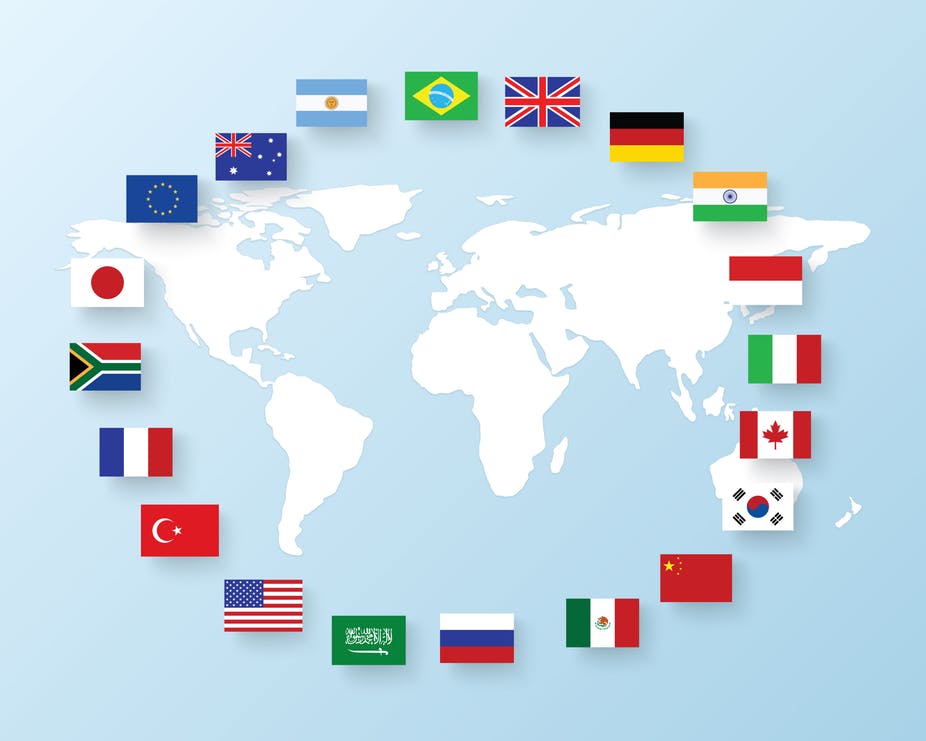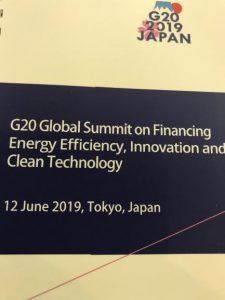ICYMI: G20 Summit on Financing Energy Efficiency, Innovation and Clean Technology Today
In order for G20 economies to achieve sustainable, low-carbon growth and development, increasing investments into energy efficiency, innovation and broader clean energy technologies are key.

The International Partnership for Energy Efficiency Cooperation (IPEEC) and UN Environment Programme Finance Initiative (UNEP FI) are the co-hosts of the G20 Global Summit on Financing Energy Efficiency, Innovation and Clean Technology which kicked off today.
They are hosting the event on behalf of the G20 Energy Efficiency Finance Task Group and are holding this as an official side event to the Japanese Presidency of the G20 in Tokyo.

Leading financial institutions from the likes of Toyota, Daikin, BloombergNEF, ING and Sumitomo Mitsui Trust Bank and various G20 policy-makers are scheduled to meet today and respond to the urgency of scaling up energy efficiency investment to address the world´s clean energy policy objectives. Satya Tripathi, Assistant Secretary-General, United Nations and Benoit Lebot, Executive Director, International Partnership for Energy Efficiency Cooperation will be co-hosting this one-day event held in Japan.
The event will provide the opportunity for leading financial institutions and policy makers to assess the state of play and define elements of action for G20 economies for the new decade, thereby supporting G20 economies’ objectives to achieve sustainable energy transitions. Energy efficiency investment needs to be scaled up urgently to deliver on the world’s agreed policy objectives for a clean energy transition.
According to UNEP, “Accelerating innovation and investment in clean technologies is critical to bridge the existing emissions gaps identified between country pledges and activities, and those that are necessary to advance global climate neutrality in a timely way.”
It further adds, “To realize ambitious decarbonization across sectors, innovation will be required across multiple areas: technologies, business models, and societal behavior.”
G20 economies can play a crucial role in finance and investment for scaling up energy efficiency. The G20 group represents 84% of the world’s total economic output, more than 80% of primary energy consumption. While G20 countries are also responsible for about 80% of the world’s greenhouse gas emissions, only six of them have communicated official plans for how they’re going to reduce their emissions between now and 2050. Research from The New Climate Economy finds that the world could reap $26 trillion in economic benefits between now and 2030 by taking bold climate action.
For example, the world is expected to invest about $90 trillion in infrastructure between now and 2030, more than what’s currently in place for the world’s entire infrastructure stock. Three-quarters of this investment is projected to be spent in G20 countries, much of which will be programmed in the next few years. These investments need to be guided with a long-term view so that they build clean energy systems and public transit instead of fossil fuel plants and parking lots. This will help avoid lock-in and stranded assets, and help countries collectively achieve the goal of limiting warming to 1.5°C.




